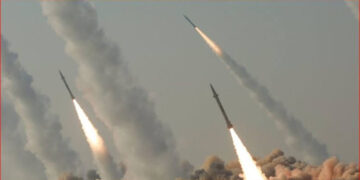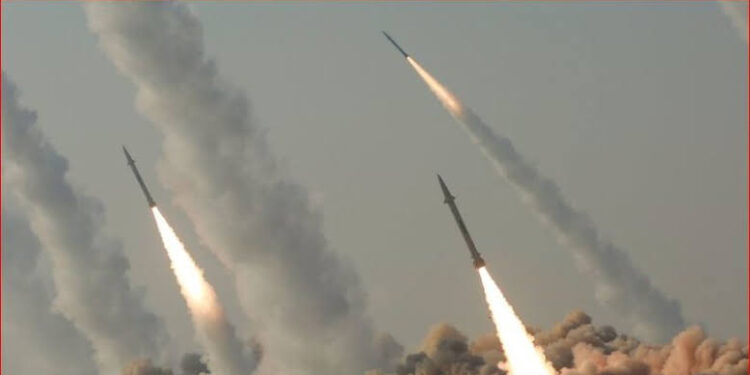By Lucy Adautin
In the early hours of Friday, Iran’s air defenses engaged incoming targets amidst reports of explosions, signaling potential retaliatory action by Israel for Tehran’s recent drone and missile attack.
After reported explosions in Isfahan and Tabriz, Iranian state media downplayed the suspected attacks’ damage, leading to the lifting of overnight flight restrictions.
Israel has not issued an official statement, but Israeli politicians suggested the country had conducted a strike against Iran. ABC News reported that a senior US official confirmed Israel’s launch of missiles in a retaliatory strike against Iran early on Friday morning.
CBS News also reported that two US officials had confirmed to it that an Israeli missile had hit Iran.
Isfahan houses both an Iranian military air base and an important site in Iran’s nuclear programme, which Tehran insists is purely peaceful but which the west fears could put the Islamic Republic on the threshold of weapons capacity.
Tasnim news agency, which is close to Iran’s elite Revolutionary Guards, reported that the air base and nuclear facility near Isfahan were safe and rejected reports of any attack from outside the country.
READ ALSO: JPMorgan Raises Caution On Phasing Out Fossil Fuels, Calls for ‘Reality Check’
The International Atomic Energy Agency, the UN’s nuclear watchdog, said on Friday it could “confirm that there is no damage to Iran’s nuclear sites”.
It added in a post on the social media platform X that it “continues to call for extreme restraint from everybody and reiterates that nuclear facilities should never be a target in military conflicts”.
Tally Gotliv, a lawmaker from the ruling Likud party, wrote on the platform that Israelis should have their “head . . . held high with pride” over its strength, adding: “May we regain our power of deterrence”.
In a more enigmatic post, Itamar Ben-Gvir, Israel’s far-right minister for national security, who had called for a “crushing attack” against Iran, wrote on X: “Weak!”
Oil futures jumped following the reports. Futures for Brent crude, the international oil benchmark, rose as much as 4.2 per cent to $90.75 per barrel while West Texas Intermediate, the US marker, gained as much as 4.3 per cent to $86.28 per barrel.
Gold, a haven during times of geopolitical uncertainty, rose as much as 1.6 per cent to $2417.89 per troy ounce.
The White House and Pentagon declined to comment.
Tension is high in the Middle East over possible Israeli retaliation after Iran fired more than 300 armed drones and missiles at the Jewish state last weekend, the first time Tehran has targeted the country directly from its own soil.
Iran stated that the strike was in retaliation to an assault on its embassy in Damascus, resulting in the deaths of senior military commanders, which Tehran attributed to Israel.
Despite Western appeals for restraint and concerns about its potential repercussions on the Gaza conflict, Israeli officials have signaled their intention to retaliate, raising fears of escalating tensions in the Middle East and the possibility of all-out war.
Previously, the Pentagon announced that Defense Secretary Lloyd Austin conversed with his Israeli counterpart, Yoav Gallant, on Thursday to address “regional threats and Iran’s destabilizing actions in the Middle East.”



































